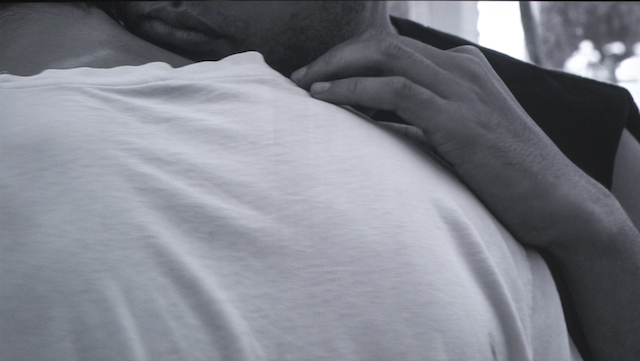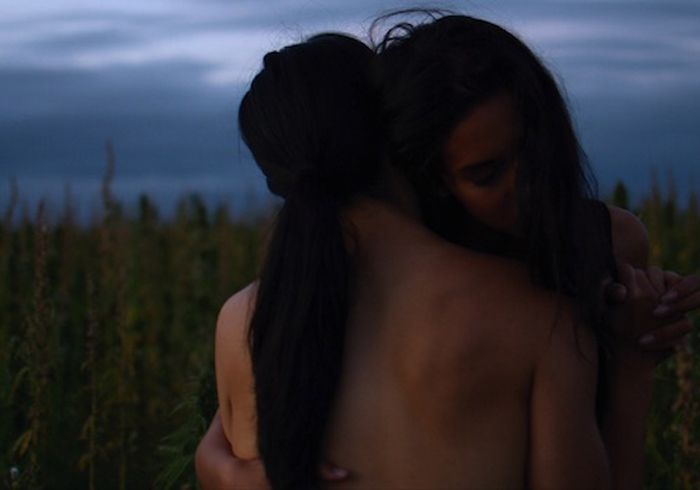Two people caress each other, clasping unhurriedly at one another’s hands, arms and torsos in a slow tangle that closes as a gentle dance: each man leans into and against the other, swaying along to a song sung in Te Reo Māori. That’s all that happens, and it’s mesmerising. Shannon Te Ao’s body of work distils one of the reasons that I’m drawn towards moving image: his videos physically slow you down. The very medium itself demands an investment of time, and a good video can hypnotise you in place, and then move you according to its own measure – causing time to slip by, and you, the viewer, into another realm. The work described is a two-channel video titled my life as a tunnel (2018), based on a scene from the American film director Charles Burnett’s Killer of Sheep (1977), in which the protagonist and his wife share a slow dance to Dinah Washington’s recording of This Bitter Earth (1960). The version of the song in Te Ao’s video is translated into Māori.
my life as a tunnel is the latest iteration of a video project that also includes With the sun aglow, I have my pensive moods (2017) and Untitled (malady) (2016). A descendant of the Ngāti Tūwharetoa, a Māori tribe based in the central region of North Island, Aotearoa, Te Ao works across moving image, performance and installation, weaving together indigenous historical narratives and biography in a cinematic style that is peaceful and melancholic, while charged with longing and rooted to the physical ancestral landscape. Te Ao’s preoccupation with Te Reo (which translates literally as ‘the language’) manifests in his works through Māori waiata (songs) and whakataukī (proverbs), one of the most compelling of which he has translated into English in With the sun aglow, first presented at the Edinburgh Art Festival in 2017 as an installation. The song, written around 1846 by the daughter of the then Ngāti Tūwharetoa chief, after she contracted leprosy from a foreign lover, is narrated by a throaty, disembodied voice. But Te Ao’s videos don’t require any explanation and nor does he force it: by simply setting one image against another using two channels, the artist encourages the tendrils of a narrative to unfold naturally, letting the viewer reach for meaning. With the sun aglow shows the Rangipo Desert cut through with pylons and in the distance, dust billowing from a highway that just edges onto the Ngāti Tūwharetoa’s lands, and scenes from a dairy farm built directly over tribal burial grounds in the area; a second screen shows two women dancing together in a field, holding each other and bathed in nautical twilight. In Te Ao’s works, humans and landscapes, culture and nature, are connected by empathy, tradition and a sense of home.

Shannon Te Ao lives and works in Wellington, New Zealand. He was awarded the Walters Prize in 2016 by Auckland Art Gallery, and his work has been included at the Edinburgh Art Festival (2017), the 11th Gwangju Biennale (2016), and the Biennale of Sydney (2014). my life as a tunnel is currently on show at Dowse Museum, Wellington, through 22 July
Fi Churchman is editorial assistant at ArtReview Asia
From the Summer 2018 issue of ArtReview Asia, in association with K11 Art Foundation
